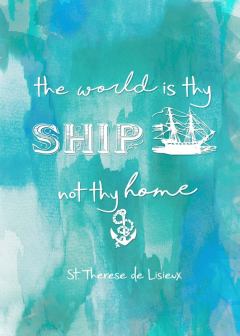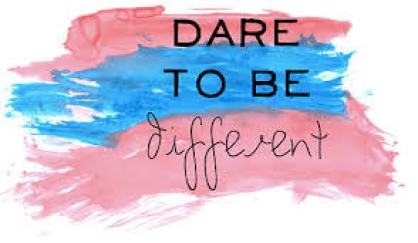Editor’s Note: This post was originally published on June 20, 2019.
According to the great English writer, J.R.R. Tolkien, “Oft hope is born when all is forlorn.” When I first discovered this pithy quote by the creator of Middle Earth, I paused and pondered his words’ truth. More often than not, the seed of hope gets planted within the soil of my loneliness.
Over the past year, my wife and I experienced spiritual highs and lows. Currently, I am in a period of stability—a time where hope is my guiding light! Reflecting back on my personal valleys, I realized that the times I felt distant from God, my friends, and even my wife. Oddly enough, this become an opportunity for me to turn to the virtue of hope! Since I placed my hope [and ultimately greater trust in the Lord], I am better anchored in my faith—even in the midst of continual strife.
Mahatma Gandhi once declared, “When I despair, I remember that all through history the way of truth and love have always won. There have been tyrants and murderers, and for a time, they can seem invincible, but in the end, they always fall. Think of it–always.” Hope defends against despair, especially hope in truth, goodness, and beauty. According to Mike Pacer in Mercy and Hope, “Hope guides us through the darkness. It assures of the light that is just beyond our sight.” Along with this profound insight, I discovered three easy ways which helped shift my mindset away from despair and towards hope.

Larger Piece of the Puzzle
Growing up my mom and I used to always work on jigsaw puzzles during hot summer days or cold winter months. Five hundred and one thousand piece puzzles seem daunting at first. What helped alleviate any anxiety is knowing that I was not alone in figuring out how the pieces fit together. A second key aspect to putting together puzzles is forming the outside frame first. Finishing the perimeter provided hope in solving the puzzle!
Getting lost in the shuffle of life is analogous to navigating through a massive jigsaw puzzle. Without borders and helpers it’s easy to lose hope and give up. Puzzles provide a concrete example of how different pieces fit together perfectly to create a completed picture. Knowing your place in the world—as a piece to the larger story of life—may be helpful in lessening anxiety and orient us towards hope.
Hope Our True Consoler, Not False Optimism
Dovetailing off the previous point, the virtue of hope is a true helper. Mike Pacer writes, “The key to hope is to acknowledge our feelings and separate them from reality (Mercy and Hope p.121). Hope isn’t the same as wishful thinking or mere pseudo-optimism. A realness exists with hope. The virtue of hope does not produce a placebo effect like false-optimism.

God gives us the gift of hope. According to the Catechism of the Catholic Church paragraph number 691, “When he proclaims and promises the coming of the Holy Spirit, Jesus calls him the “Paraclete,” literally, “he who is called to one’s side,” ad-vocatus.18 “Paraclete” is commonly translated by “consoler,” and Jesus is the first consoler.19 The Lord also called the Holy Spirit “the Spirit of truth.”

Heaven—the Final Frontier
Referring to St. Paul’s assertion for our yearning for Heaven in Hebrews 13:14, Mike Pacer declared, “We are not living in our permanent home. Rather, we are on a journey. We have a definite destination (Mercy and Hope pp. 134-135). Put another way, St. Augustine’s axiom, “Our souls are restless until they rest in thee [God].” All the material possessions, power, and control in the world do not offer long-term and lasting fulfillment. Humanity keeps yearning for something greater, and greater, and greater!
St. Therese of Liseux famously summed up this truth using a nautical example, “The world’s thy ship and not thy home!” Earthly existence is a pilgrim journey. The virtue of hope allows us to don our theological lens to view more clearly that Heaven is the final frontier!
O my God, relying on your infinite goodness and promises, I hope to obtain pardon of my sins, the help of your grace, and life everlasting, through the merits of Jesus Christ, my Lord and Redeemer.
Related Links
Five Ways to Move from Despair to Hope
Hope: A Misunderstood Virtue
3 Titles of Mary that Give Me Hope
Satan’s Sinister Weapon—Dosage of Despair
If you enjoyed learning about this saint become an email subscriber. Enter your email address in the Subscribe to Blog Via Email box and hit the Subscribe button. It’s that easy! Soon you will be receiving cool Catholic content in your inbox.












